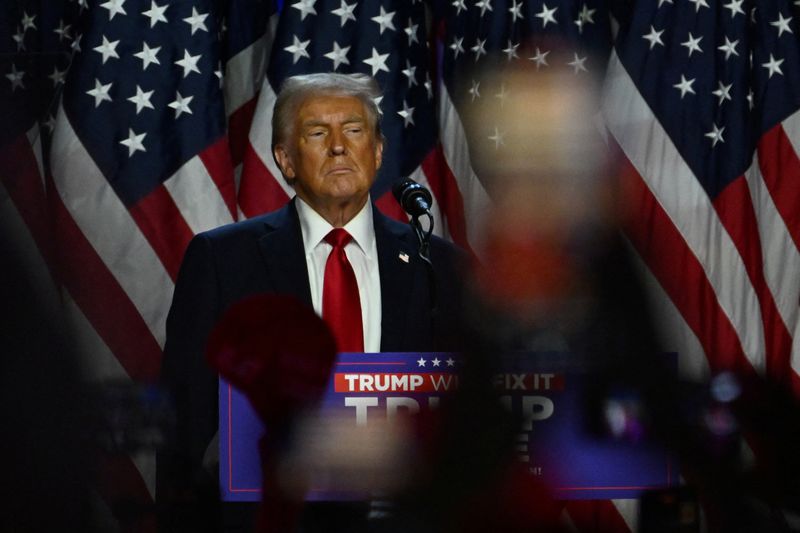By Philip Blenkinsop and Anita Komuves
BUDAPEST (Reuters) -The European Union's goal of boosting competitiveness to catch up with rivals the United States and China has gained fresh urgency after Donald Trump's election win, Mario Draghi said on Friday, as doubts increase that the bloc is up to the task.
Trump warned before his U.S. presidential victory that the 27-nation bloc will have to "pay a big price" for not buying enough American exports and has threatened 10% tariffs on all U.S. imports.
Former European Central Bank chief Draghi, speaking at an EU summit before presenting his report on EU competitiveness to EU leaders on Friday, said the sense of crisis had deepened.
"The sense of urgency today is greater than it was a week ago," he told reporters on Friday.
He spoke about the U.S. election, but could have said the same about the European Union itself after the collapse of the German government on Wednesday. Given French President Emmanuel Macron's domestic problems, the Franco-German engine normally driving the EU is weakened if not broken.
The European Union is falling behind rivals in the green and digital transition due to factors including limited innovation, red tape, high energy prices and dependence on China for critical raw materials.
EU leaders signed off on the "Budapest Declaration" on Friday, a long to-do list with deadlines for a deeper single market, more capital for investments and a unified energy market.
European Commission chief Ursula von der Leyen said her new EU executive would outline plans in its first 100 days to help industry reach carbon neutrality by 2050 and make proposals to broaden the EU single market by June.
Draghi has said the bloc needs additional investment of 750-800 billion euros per year, but frugal EU countries have already taken issue with the idea that some of this should come from joint EU assets.
On Friday, Draghi said the most urgent thing to do was not joint funding, but to tackle fragmentation of the single market and of capital markets.
But discussions on a Capital Markets Union (CMU) have dragged on for a decade because of entrenched national interests, different business cultures and regulations in EU members.
Current ECB chief Lagarde said the bloc must move urgently to create a unified system to steer private savings to innovative firms at scale and consider "new methodologies" to achieve this, officials briefed on the discussions said.
It is just the sort of issue a Franco-German consensus could drive to the finish line, but the two are at odds over a French idea to allow a small group of countries to press ahead.
Belgian Prime Minister Alexander De Croo said the EU needed to pull together ahead of Trump's return to the White House, explain to him the impact of a tariff war and discuss the economic behaviour of their common competitor China.

However, Lucas Guttenberg, senior adviser at think tank Bertelsmann Stiftung, was not impressed.
"In response to the election of Donald Trump, EU leaders come up with a technocratic word salad that says nothing, provides no direction and doesn't hurt anyone," he said in a social media post on X.